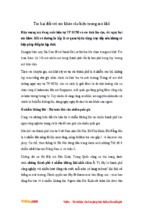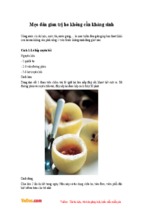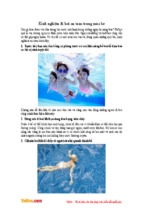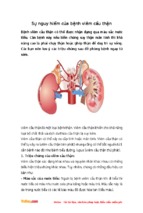© Copyright, Joint Commission International
Getting started with JCI
Accreditation
Evaluate the commitment of leadership
(Board, CEO, and clinical leaders) to a
never ending journey.
Assess the purity of purpose: to be a
safe, high quality organization.
Set a clear understanding that the
process will require significant leader
time. Assigning accreditation only to the
quality department will not work.
Client name/ Presentation Name/ 12pt - 2
© Copyright, Joint Commission International
The Accreditation Journey:
The Basics
List all barriers and strengths to success
and plan strategies for each
Understand implications for financial
and human resources. These may
include facility enhancement, training,
recruitment of new staff, and redesign of
systems.
Set a realistic timeframe for preparation.
Average preparation time?
Client name/ Presentation Name/ 12pt - 3
© Copyright, Joint Commission International
The Accreditation Journey
• JCI International Standards for Hospitals, 3nd Edition
• Hospital Survey Process Guide
• Web-based training on introduction to the international
accreditation process
• ISAS – International Self Assessment System
• Newsletters and publications, both print and electronic
• JCI Practicum – Several locations worldwide
• JCI Executive Briefings
Client name/ Presentation Name/ 12pt - 4
© Copyright, Joint Commission International
The Accreditation Journey:
JCI Resources
Provide education for organizational leaders and managers
and then progressively for all staff. Re-educate frequently.
Include:
Introduction to accreditation philosophy and approach
Discussion of accreditation as a patient-focused quality
improvement and risk reduction strategy
Review of the standards and measurable elements
Discussion of the survey process and what to expect
Project planning and next steps
Client name/ Presentation Name/ 12pt - 5
© Copyright, Joint Commission International
The Accreditation Journey:
Continual Education
The Accreditation Journey:
Baseline Assessment
Client name/ Presentation Name/ 12pt - 6
© Copyright, Joint Commission International
Determine the organization’s current adherence to the
standards and each measurable element.
Use knowledgeable and credible evaluators (either
internal or external consultants) who will critically and
objectively assess each area.
Score as Met, Partially Met, or Not Met and cite specific
findings and recommendations.
Include all areas of the organization in the assessment.
Consider an assessment of organizational “culture”
related to quality and patient safety.
The Accreditation Journey:
Baseline Assessment
In addition to addressing standards adherence, analyze
and collect available baseline quality data as required by
the quality monitoring standards (QPS).
Client name/ Presentation Name/ 12pt - 7
© Copyright, Joint Commission International
More data and data sources may be available than
you first realize.
Begin to combine activities of riskmanagement, quality management, facility
safety, etc. into one comprehensive data
set.
Examples: medication errors, hospitalassociated infection rates, antibiotic usage,
falls, hazardous material spills, surgical
complications, etc.
Client name/ Presentation Name/ 12pt - 8
© Copyright, Joint Commission International
The Accreditation Journey:
Baseline Assessment
Using the findings of the baseline assessment, develop a
detailed project plan with assigned responsibilities,
deliverables, and timeframes.
Example: Revise informed consent policy, develop a
new informed consent statement, educate staff by 30
August. Responsibility: One Person
If available, use a software program such as MS
Project or Excel to confirm project plan in writing.
Hold leaders and staff accountable to plan.
Client name/ Presentation Name/ 12pt - 9
© Copyright, Joint Commission International
The Accreditation Journey:
Action Planning
Think structure-process-outcome in the
implementation sequence, in other words develop
polices first. Expectation required actions result
Implement those requirements that will take the
longest to make fully functional such as the quality
monitoring system for the QPS indicators.
Do not forget the “track record” requirement = 4
months a first survey.
Client name/ Presentation Name/ 12pt - 10
© Copyright, Joint Commission International
The Accreditation Journey:
Action Planning Tips
Assign oversight of each chapter of standards to
a respected champion or leader who will select
team members from throughout the hospital.
Tip: Involve those who may be skeptical of the
process.
Look for good people skills, time management
skills, and consensus building skills.
Be prepared to change assignments as new
champions emerge and some leaders drop out.
Client name/ Presentation Name/ 12pt - 11
© Copyright, Joint Commission International
The Accreditation Journey:
Team Approach
In addition to an overall project plan, it is often helpful to
compile a list of all required policies and procedures that
will need development or revision.
It may take more time than you think to write, have
organizational review, and get final approval on policies.
Be certain that your policy reflects your actual practice.
This is how surveyors will evaluate your organization.
Plan time for education of new policies. Test
understanding and compliance.
Create, refine and/or test your document management
system. (Policy on Policies)
Client name/ Presentation Name/ 12pt - 12
© Copyright, Joint Commission International
The Accreditation Journey:
Policies and Procedures
The Accreditation Journey:
Mid-Point Strategies
Continue to monitor your progress in meeting the
standards; do a mini-evaluation of each chapter at
regular intervals.
Continue to involve as many staff as possible in the
process. Make accreditation an organizational quality
goal that you are striving to achieve together.
Keep staff motivated.
Client name/ Presentation Name/ 12pt - 13
© Copyright, Joint Commission International
It is not a setback to adjust your project plan if
necessary. Changes in processes often take longer than
expected.
Physician commitment to the accreditation process is
critical to success.
Physicians must see accreditation standards as
a framework by which organizational processes
will be improved in order to support good
medical care.
Accreditation is not a peer review process as
many physicians suspect.
Accreditation supports the use of good
clinical science and best practices.
Client name/ Presentation Name/ 12pt - 14
© Copyright, Joint Commission International
Successful Strategies:
Physician Perspective
More Successful Strategies
Learn from what others have done well and adapt
the experience to the needs of your organization.
Take advantage of resources such as the JCR
Good Practices Database (e.g. download electronic
example policies and plans and adapt to your
organization).
Client name/ Presentation Name/ 12pt - 15
© Copyright, Joint Commission International
Ask JCI for assistance and clarification with
standards interpretation. Don’t waste time going
down the wrong path.
Pitfalls: Be Aware
Top leaders give “lip service” to the process, but are
unrealistic in what it will take to achieve accreditation in
terms of time and resources.
Over-eager managers make the entire accreditation
process feel punitive and inspecting rather than
motivating.
Client name/ Presentation Name/ 12pt - 16
© Copyright, Joint Commission International
Staff end up feeling that accreditation is extra work for
which they are not rewarded or recognized.
Mock Survey
Use evaluators (internal or external consultants) who
were not involved in the baseline assessment and
preparation. They will look at the organization with
more objectivity. If using internal evaluators, mix
disciplines and locations.
Plan revisions and corrections based on the findings
of the mock survey. Educate.
Client name/ Presentation Name/ 12pt - 17
© Copyright, Joint Commission International
Plan for a final “mock survey” at least 6 months in
advance of the target date of your actual
accreditation survey.
Applying for Accreditation
–Survey Application
– Submit application in electronic or
written format to JCI Office
– Must inform JCI if changes to
information in application after
submission
– determine length of survey &
number of surveyors
– prepare preliminary agenda &
contract for survey
–Survey Scheduled within 180 days
Client name/ Presentation Name/ 12pt - 18
© Copyright, Joint Commission International
–Application is used to
The Accreditation Survey
Request an application from JCI at least 6 months
or longer in advance of target dates for survey.
A survey team leader will be in contact to
coordinate an agenda and plans for the survey.
Support staff in doing the work they routinely do so
the survey does not cause undue anxiety and fear.
Client name/ Presentation Name/ 12pt - 19
© Copyright, Joint Commission International
Once your application is completed, a surveyor
team will be assigned and dates confirmed.
Celebrate your success!
If there are areas for improvement, you may need
to submit documentation or a follow-up progress
report to JCI.
Maintain the momentum from your preparation and
survey. Establish a system and process for ongoing
standards compliance and survey readiness.
Continue education.
Client name/ Presentation Name/ 12pt - 20
© Copyright, Joint Commission International
After the Survey
- Xem thêm -




















